At the start of this endeavor, gargoyles were not a staple of French architecture.
When paired with the increasingly superstitious nature of the contemporary Catholic church, this made gargoyles a perfect fit.
By the time Notre-Dame was finished in 1345, dozens of limestone gargoyles covered its exterior walls.
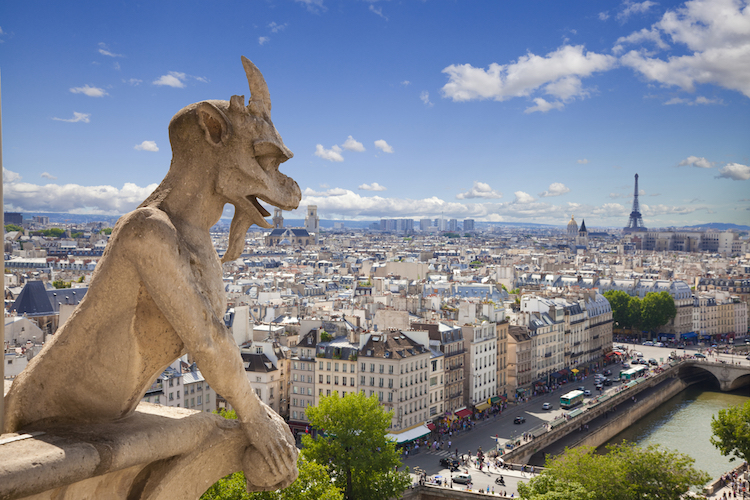
Notre-Dame Chimera (Photo:Jose Ignacio SotoviaShutterstock)
Gargoyles on Notre-Dame (Photo:Peter CadoganviaWikimedia CommonsCC BY-SA 4.0)
Why this uniform appearance?
According to art historian Michael Camille, the cathedral’s gargoyles look alike due to their ephemerality.
However, unlike the gargoyles, these sculptures are not an original fixture of Notre-Dame.
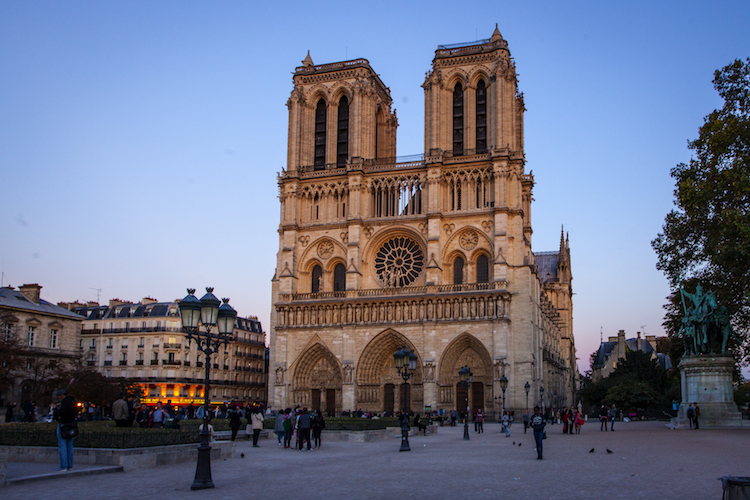
Notre-Dame Cathedral (Photo:Alexandra LandeviaShutterstock)
Bored of the Gothic style and embracingBaroquearchitecture, Parisians all but petitioned for the crumbling cathedral’s demolition.
Fortunately, French writer, playwright, and preservationistVictor Hugosought to save it.
In 1844, architects Jean-Baptiste-Antoine Lassus and Eugene Viollet-le-Duc were commissioned to restore the aging cathedral.
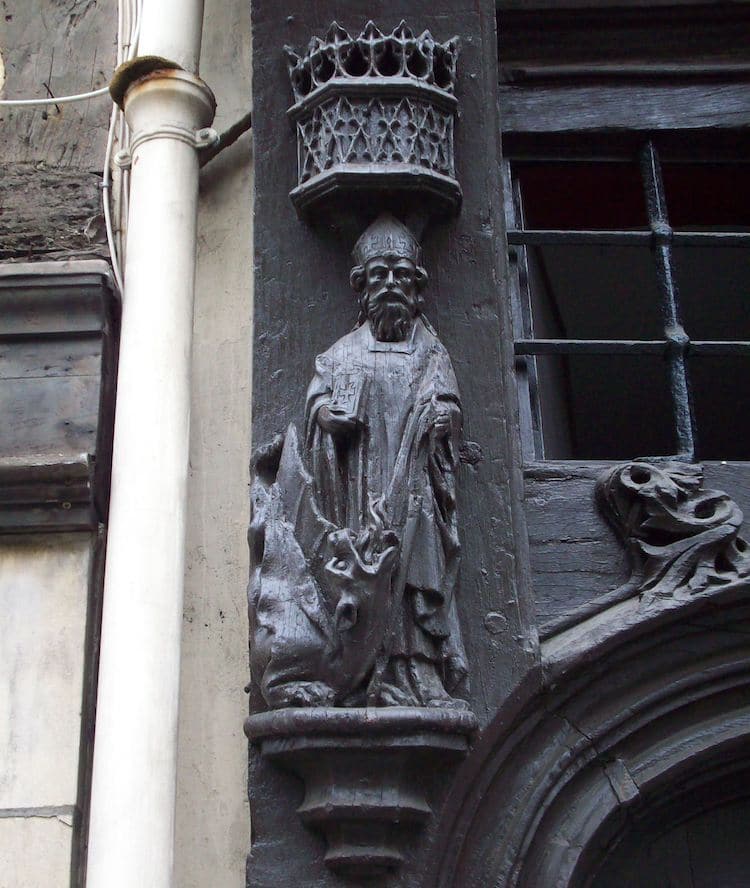
A statue of Saint Romain with Le Gargouille at his feet (Photo:GiogoviaWikimedia CommonsCC BY-SA 3.0)
Unlike the gargoyles, these statues do not protrude from the external walls.
Instead, they line theGalerie des Chimeres, a balcony that connects the two bell towers.
The Galerie des Chimeres
Notre-Dame’s collection of chimera includes frightening animals, fantastical hybrids, and mythical creatures.
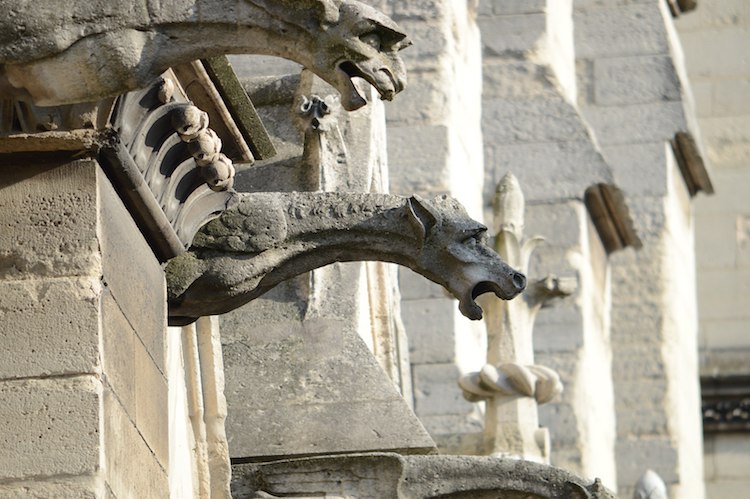
Gargoyles on Notre-Dame (Photo:Peter CadoganviaWikimedia CommonsCC BY-SA 4.0)
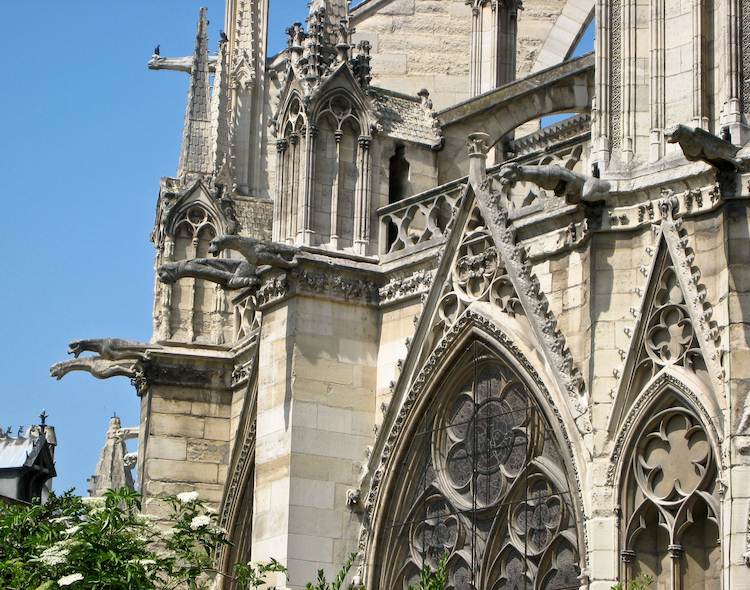
Gargoyles on the side of Notre-Dame (Photo:Sharon MollerusviaShutterstock)
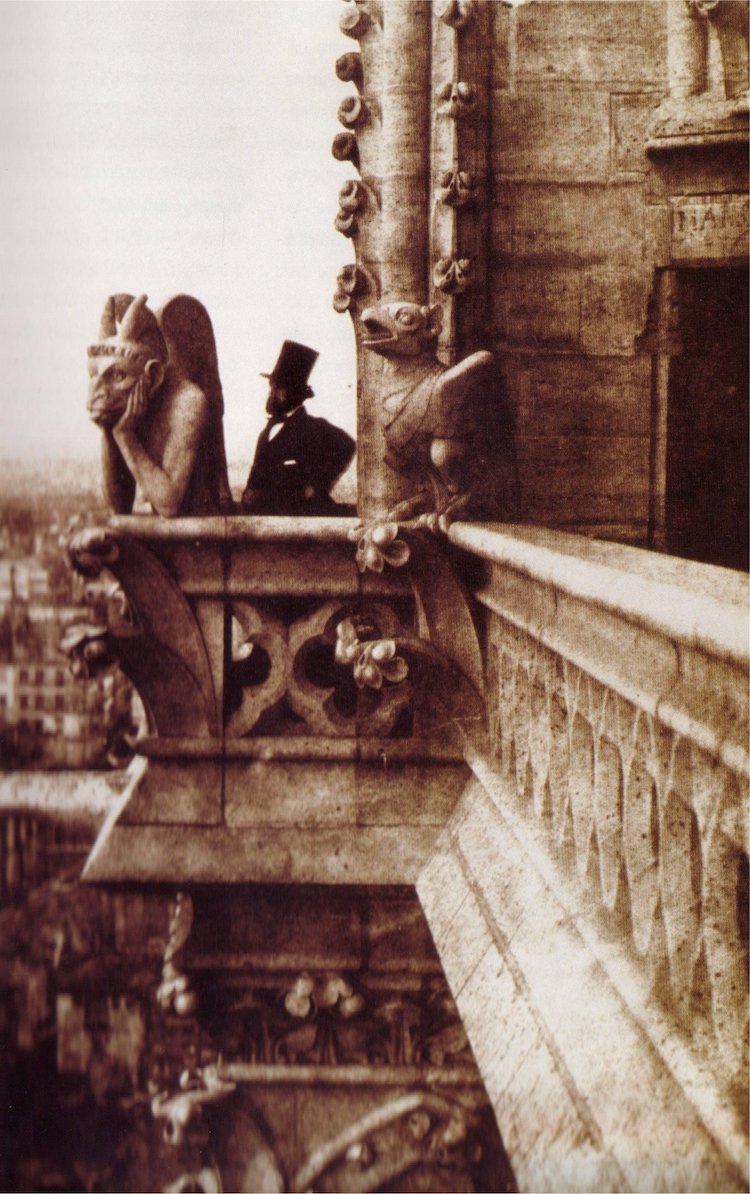
Charles Nègre, “Henri Le Secq near the ‘Stryge' chimera,” 1853 (Photo viaWikimedia CommonsPublic Domain)
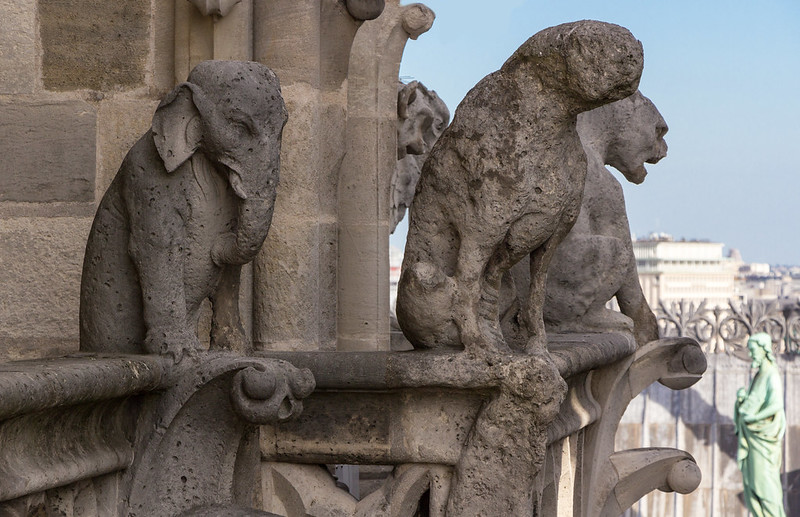
The Galerie des Chimères
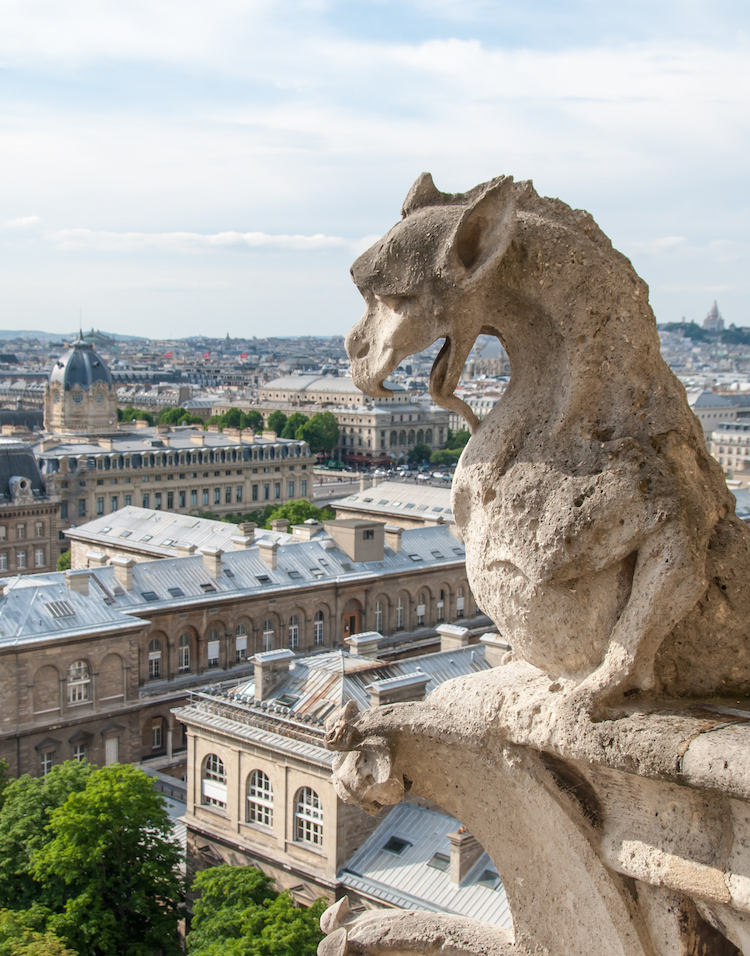
Wyvern (Photo:starryvoyageviaShutterstock)
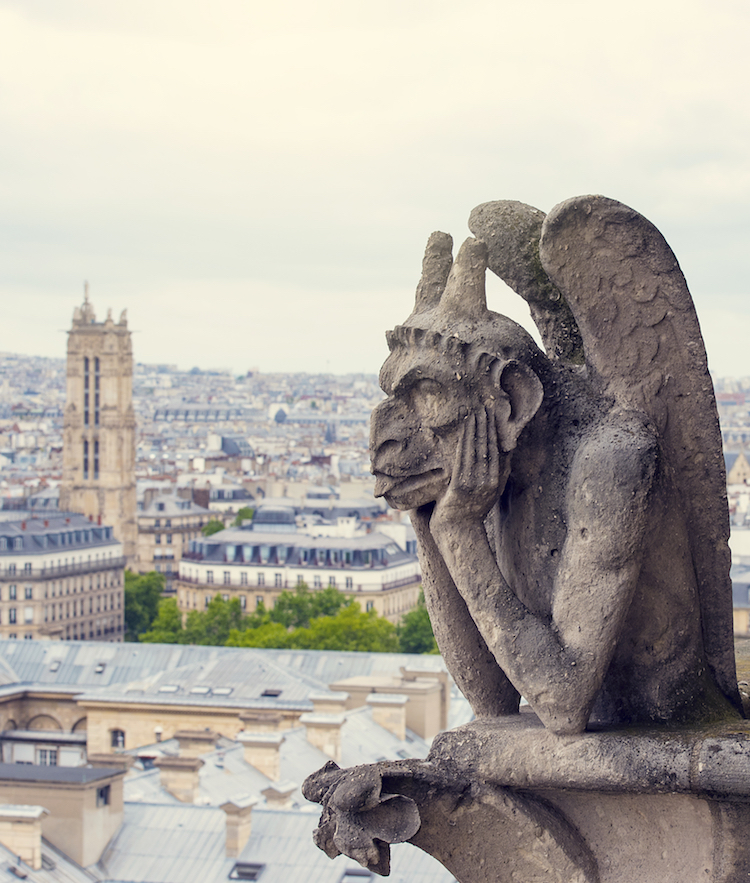
Stryga (Photo:Savvapanf PhotoviaShutterstock)
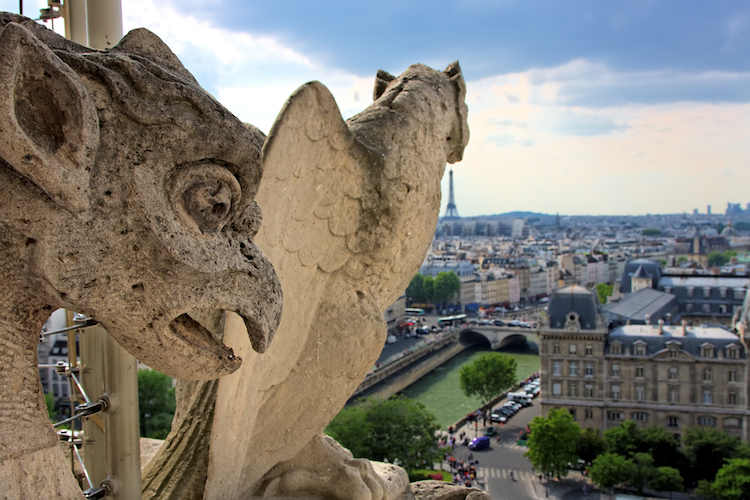
Up close and personal with the chimera (Photo:S.BorisovviaShutterstock)